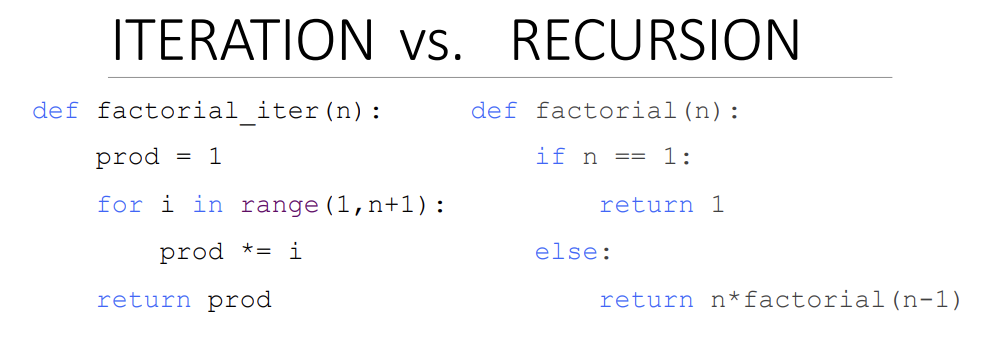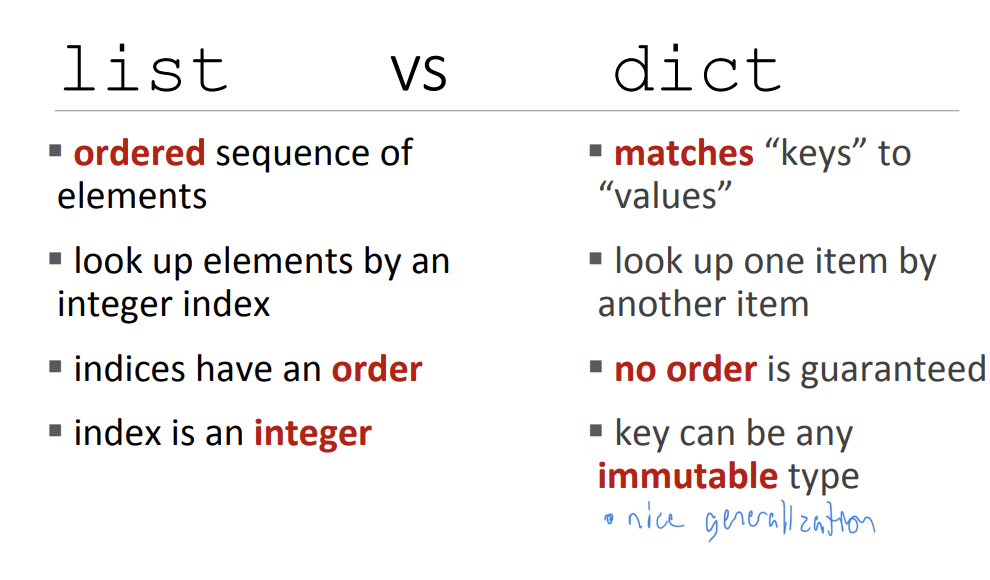Lecture 6: Recursion and Dictionaries
1/17
There's no tags or description
Looks like no tags are added yet.
Name | Mastery | Learn | Test | Matching | Spaced |
|---|
No study sessions yet.
18 Terms
Recursion
process of repeating items in a self-similar way
What is Recursion (Algorithmically/Abstractly)
a way to design solutions to problems by divide-and-conquer or decrease-and-conquer; reduce a problem to simpler versions of the same problem
What is Recursion (semantically)
a programming technique where a function calls itself
How to make sure not to have infinite recursion in programming
must have 1 or more base cases that are easy to solve
must solve the same problem on some other input with the goal of simplifying the larger problem input
Recap of Iterative Algorithms
looping constructs (while and for loops) lead to iterative algorithms
can capture computation in a set of state variables that update on each iteration through loop

Iteration vs Recursion
Recursion may be simpler, more intuitive
Recursion may be more efficient from Programmer POV
Recursion may not be efficient from Computer POV
Mathematical Induction
To prove a statement indexed on integers is true for all values of n if can prove it’s true when n is smallest value and then prove that if it’s true for an arbitrary value of n, one can show that it must be true for n+1
Divide and Conquer Algorithm
Solve a hard problem by breaking it into a set of sub-problems such that sub-problems are easier to solve than the original and solutions of the sub-problems can be combined to solve the original.
Python Dictionary
Mutable compound data type that stores pairs (keys and values) of data
Dictionary lookup
similar to indexing a list; looks up the key then returns the value associated with the key; if key isn’t found, gets an error
Dict[new key] = new value
add an entry to dictionary
“Key” in dictionary
test if key in dictionary (either returns a True or False value)
del(Dict[Key])
delete an entry in dictionary
Dict.keys()
gets an iterable that acts like a tuple of keys (no guaranteed order)

Dict.values()
gets an iterable that acts like a tuple of values (no guaranteed order)

Dictionary values
any type (immutable and mutable); can be duplicates, lists, and even other dictionaries
Dictionary Keys
must be unique; immutable/hashable type (int, float(challenging), string, tuple, bool)
list vs dict
